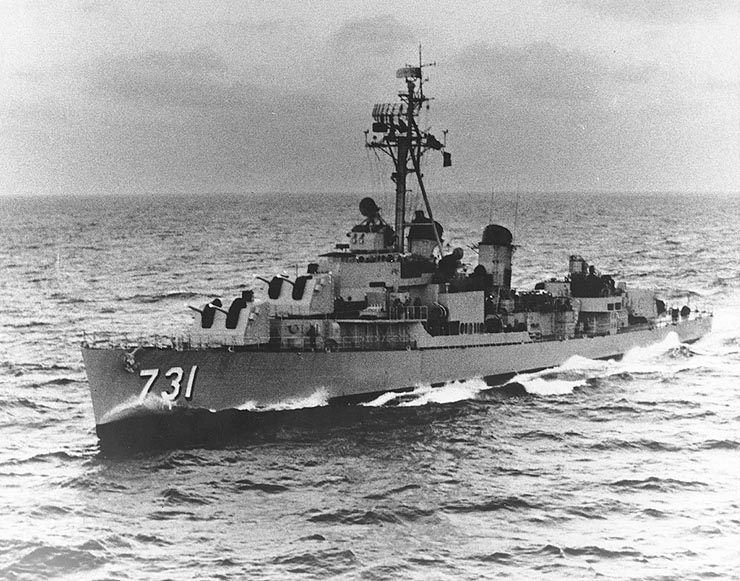According to Johnson, North Vietnamese patrol boats attacked the US Navy in international waters on August 5th 1964
約翰遜聲稱,越南共和國的巡邏艇1964年8月5號在公海襲擊了美國海軍。
Johnson requested and obtained from Congress wide powers to wage war against North Vietnam
約翰遜向國會請求并獲得了權(quán)力對越作戰(zhàn)。
In hindsight, it looks that Johnson managed the so-called Tonkin Gulf incident to get a free hand to fight communism
現(xiàn)在看來,似乎是約翰遜操縱了所謂的“東京灣事件”來獲得放手與共軍作戰(zhàn)的權(quán)力。
a worthy end which Johnson pursued, I believe, by false means
我認(rèn)為約翰遜是通過虛假手段來獲得他要的結(jié)果。

In march 1965, the US unleashed its first massive bombing campaign, Operation Rolling Thunder, but air power could not crush North Vietnamese morale
1965年3月,美國展開了第一次大規(guī)模炸彈襲擊——“滾雷行動”,但這樣的空軍力量不能擊潰越南民主共和國人民的斗志。
The first American combat units arrived in Vietnam that same month
美國第一批作戰(zhàn)部隊(duì)也于3月到達(dá)越南。
By 1968, more than 500,000 American troops were in Vietnam, many of them draftees
到1968年,有超過50萬美國士兵在越南作戰(zhàn),他們中很多人都是應(yīng)征入伍。
Unlike the South Koreans, who fought hard for their country, the South Vietnamese were far less willing to die for their corrupt regime
南朝鮮人,拼命為自己的國家作戰(zhàn),越南共和國的人卻不是他們不愿意為腐敗的政權(quán)獻(xiàn)出生命。
But despite the Americans' numerical and technological advantages, the Viet Cong and North Vietnamese could not be beaten by traditional means
盡管美國在數(shù)量上和技術(shù)上都有很大優(yōu)勢,美國還是無法通過傳統(tǒng)手段擊敗越共和越南民主共和國人。
They were fighting as guerrillas on their home territory
他們通過游擊戰(zhàn)的方式在國土上作戰(zhàn)。












